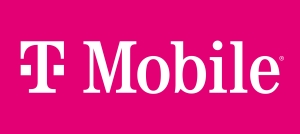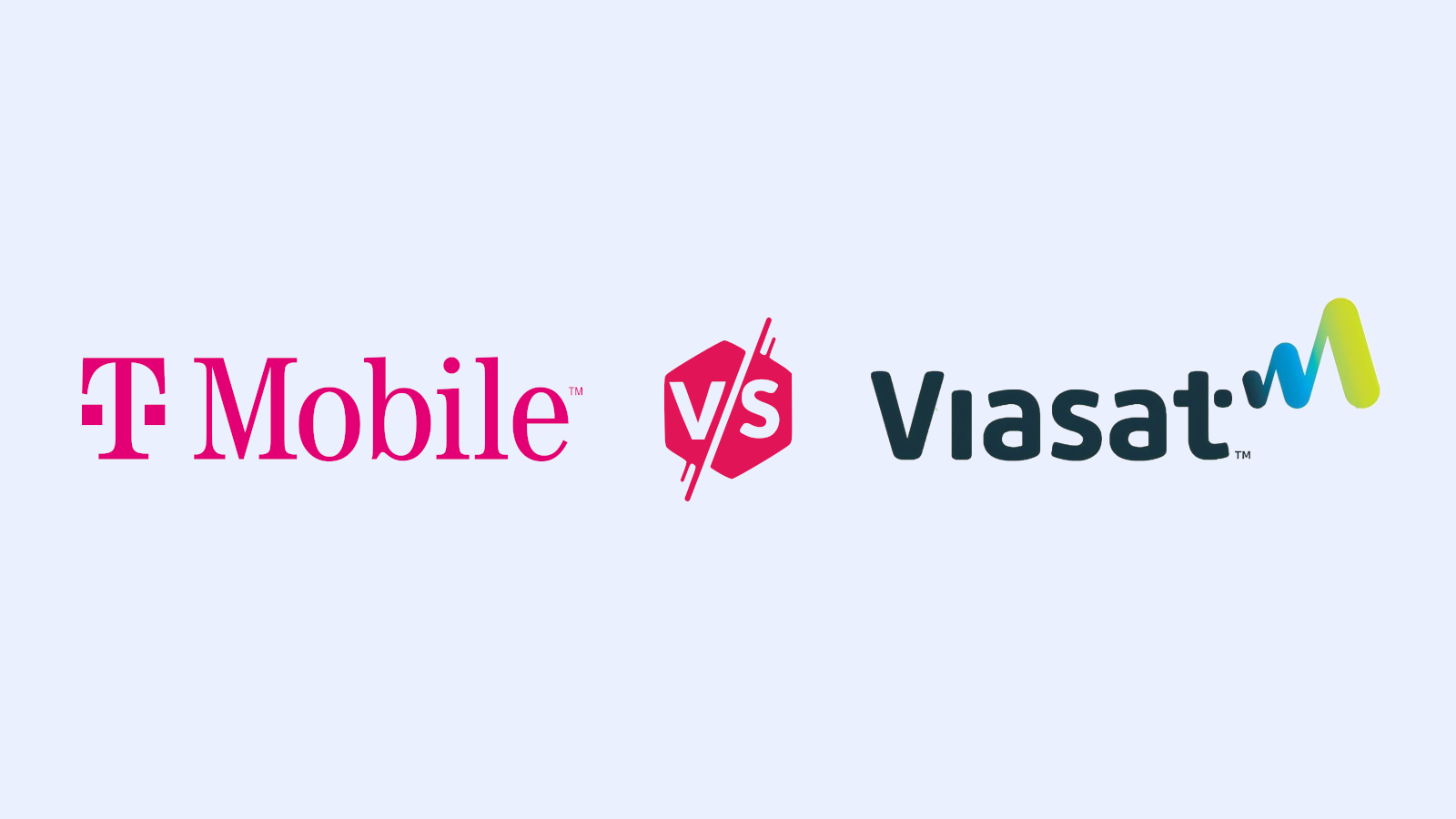Best Hotspot Data Plans 2024
Dec 12, 2023 | Share
Brand Guides
-
Best overallT-Mobile 2GB
- $10.00/mo.*
- Quick compatibility with multiple Wi-Fi hotspots
- Limited network size compared to bigger providers
- Lots of options for getting more data
-
Best for 5GVerizon Pro
- $60.00/mo. (w/ existing Unlimited phone plan), $90.00/mo. (w/out phone plan)
- Easy access to ultrafast 5G network
- Lots of data for the price
- Higher price for non–Verizon phone customers
-
Best for international travelVerizon TravelPass
- $5.00–$10.00/day
- Flexible service
- Easy access to Wi-Fi when you need it
- Connectivity limited to Verizon customers
-
Best prepaid optionVisible+ phone plan
- $45.00/mo. (after first month)
- Lots of hotspot data
- Connectivity to most smartphones
- Very slow speeds
-
Best for cell phone hotspotsT-Mobile Go5G Plus
- $90.00/mo. (for one line)
- Lots of data included
- Phone plan included
- High price
*Per connected device with AutoPay. Plus Taxes & fees.
Data effective 10/18/23. Offers and availability may vary by location and are subject to change.
When you get a hotspot, you also need hotspot data to provide a Wi-Fi connection. Many cell phone plans come with a little hotspot data for your phone. But if you use a hotspot regularly, we recommend getting a mobile hotspot device with a separate data plan for a better deal and more flexibility.
See our guide below to the best data plans from different cellular providers—including simple cell phone plans with monthly data packages, prepaid options, and deals for international roaming.
Our top pick: Which hotspot plan is best?
The best mobile hotspot plan is T-Mobile’s 2GB plan. It gives you 2GB of data to use on a T-Mobile–approved personal hotspot for $10 a month, with lots of options to buy more data through a “data pass” if you run out.
Another 5GB on this plan costs $20, 10GB is $30, and 30GB is $40—either way you’re getting a solid deal for a hotspot-only plan, especially in comparison to other providers’ offerings. You also have a few different Wi-Fi hotspots to choose from that work on T-Mobile’s network, including Inseego’s 5G MiFi M2000 for 5G fans.
Pro tip:
You can always use your phone as a Wi-Fi hotspot instead of using a standalone hotspot. It won’t be able to connect as many devices, and you may not get as much data either. But it’s a good way to go if you need a hotspot device only every once in a while. To learn more, read our guide to Wi-Fi tethering on your phone.
The five best mobile hotspot data plans
- Best overall: T-Mobile 2 GB
- Best for 5G: Verizon Pro
- Best for cell phone hotspots: T-Mobile Go5G Plus
- Best Best for AT&T: AT&T PREPAID 50 GB
- Best prepaid option: Visible phone plan
- Best for international travel: Verizon TravelPass
Best mobile hotspot data plans
| Plan | Best for | Price | Data allowance | Get it | |
|---|---|---|---|---|---|

| T-Mobile 2GB | Best overall | $10.00/mo.* | 2GB/mo. (can order more GB w/ data pass) | View Plan |
| Verizon Pro | Best for 5G | $60.00/mo. (w/ existing Unlimited phone plan), $90.00/mo. (w/out phone plan) | 100GB of 4G LTE/5G, then reduced to 600Kbps | ||

| T-Mobile Go5G Plus | Best for cell phone hotspots | $90.00/mo. | 50GB/mo. (followed by unlimited 3G speeds) | View Plan |
| AT&T Prepaid 50 GB | Best for AT&T | $55.00/mo. (w/ autopay) | 50GB/mo. | ||
|
| Visible+ phone plan | Best prepaid plan | $45.00/mo. (plus price of hotspot)† | Unlimited (max 5Mbps speeds, connects only one device at a time, speeds may slow after 50GB) | View Plan |
| Verizon TravelPass | Best for international travel | $5.00–$10.00/day | 0.5GB per day | View Plan |
Data as of 10/18/23. Offers and availability may vary by location and are subject to change.
*Per connected device with AutoPay. Plus Taxes & fees.
†See full disclaimer.
What should you look for in a hotspot data plan?
The best mobile hotspot plans give you the most Wi-Fi data possible for every dollar you spend. The plan you pick should operate over a large enough network that you’ll get internet wherever you use it. And it should be compatible with a good-quality hotspot device that gives you fast speeds and lets you connect at least 10 devices.
Most hotspot plans give you a set amount of data per month. But if you’re traveling or need a Wi-Fi hotspot only intermittently, consider getting a prepaid plan so you pay for only the amount of data you need.
If you want to know more about the nitty gritty on what makes a hotspot plan worthwhile, read our longer hotspot features guide further down on this page.
Pro tip:
Still shopping around for a personal hotspot to use on your data plan? Take a look at our guide to the best mobile hotspots for a breakdown of the fastest and most useful hotspot devices for work, travel, and 5G.
How long does 100GB of data last?
A hotspot plan with 100GB of data lasts you a week or less of heavy, continuous daily use or a month of light use.
Hotspot data plans give you significantly less internet data to consume than you would get from a standard residential Wi-Fi plan. Cell phone companies have limited capacity to support internet customers, so data comes at a premium. You have to budget your use because unlimited, high-speed data usually isn’t an option.
Measuring data usage for different hotspot tasks
| Activity | How much data it uses | How much it takes to use 10GB | How much it takes to use 100GB |
|---|---|---|---|
| Checking 25 emails | 10MB | Check 25,000 emails | Check 250,000 emails |
| Posting to social media | 90MB per hour | 111 hours (4.6 days) | 1,111 hours (46 days) |
| Streaming music | 55MB per hour | 181 hours (7.5 days) | 1,818 hours (75 days) |
| Downloading a six-page PDF | 5.9MB | Download 1,694 PDFs | Download 16,949 PDFs |
| Downloading an HD movie file | Approx. 4GB | Download two movies | Download 25 movies |
| Downloading video game or game update | Approx. 20–60GB | You can’t even download one game | Download 1–5 games |
| Making a video call in SD | 340MB per hour | Make 29 hour-long calls | Make 294 hour-long calls |
| Making a video call in HD | 2GB per hour | Make 4 hour-long calls | Make 50 hour-long calls |
| Streaming video in SD | 500MB per hour | Stream 20 hours of video | Stream 200 hours of video |
| Streaming video HD | 2GB per hour | Stream 5 hours of video | Stream 50 hours of video |
| Streaming video in 4K | 8GB per hour | Stream 1.2 hours of video | Stream 12.5 hours of video |
Data from Omni Data Usage Calculator.
When you’re using a Wi-Fi hotspot, you can use a small amount of data to do a lot of basic stuff like emailing, posting to social media, sending texts over WhatsApp and streaming the occasional YouTube video in SD resolution.
But you can drain your data before you know it when you do heavy-duty activities. Downloading and streaming video are the biggest data depleters so it’s best to keep those tasks to a minimum. And use hotel or restaurant Wi-Fi when you can.
Activities to avoid when using a hotspot:
- Uploading large files (10GB or more) to a cloud drive
- Downloading large files
- Making video calls in HD
- Streaming video in HD or 4K
- Hosting a livestream
Best overall—T-Mobile 2GB
$10.00/mo.
(with option to buy more)*
- Data allowance: 2GB/mo.
- Network access: 5G, 4G LTE
- Compatible hotspots: Inseego MiFi X PRO 5G, Alcatel Linkzone, Franklin T10 Mobile Hotspot
*Per connected device with AutoPay. Plus Taxes & fees.
T-Mobile has the most flexibility when it comes to hotspot data. It’s cheap to start out and you can pay upfront for more internet data throughout the month. This plan is ideal if you need your hotspot device at irregular intervals. Get it if you regularly spend large blocks of time traveling on the road or working remotely out of town.
The 2GB plan doesn’t give you a whole lot to start out with, but it costs just $10 a month—a steal compared to the steep dollar-for-data prices that other providers have. (It’s also better than T-Mobile’s other baseline plan available, which gives you just 500MB for $5 per month.)
From there, you can add more data as you like by purchasing a “data pass.” Here’s a quick breakdown of the pricing options:
- 5GB—$20
- 10GB—$30
- 30GB—$40
 Pros:
Pros:
- Cheap price
- Lots of options to add more data
 Cons:
Cons:
- Smaller network compared to AT&T and Verizon
- Fewer hotspots to choose from
Best for 5G—Verizon Pro
$60.00/mo. (w/ existing Unlimited phone plan), $90.00/mo. (w/out phone plan)
Starting price
- Data allowance: 100GB of 4G LTE/5G, then reduced to 600Kbps
- Network access: 4G LTE, 5G, 5G Ultra Wideband (C-band and millimeter-wave)
- Compatible hotspots: Inseego MiFi X PRO 5G UW, Inseego MiFi M2100 5G UW, Verizon Global Modem USB730L (also works with your own unlocked device)
If a hotspot user needs a deluxe option for a high-flying mobile lifestyle, this is the hotspot plan to pick. Verizon’s Pro plan gives you a big, 100GB chunk of high-speed internet data to work with and the fastest 5G speeds possible.
You get unlimited access to Verizon’s much-touted 5G Ultra Wideband network, which has a relatively small footprint nationwide but will get you stupendously fast speeds—think 1,000Mbps and up. 5G Ultra Wideband includes both millimeter-wave and C-band frequency channels, and Verizon is expanding C-band nationwide throughout 2022.
This plan isn’t affordable enough to justify using this as your permanent home Wi-Fi option (that’s what Verizon 5G Home Internet is for). And unfortunately, it costs $30 more per month if you order the plan without already having a Verizon Unlimited phone plan. You’ll want this plan if you’re a heavy-duty hotspot user with some serious data demands. If that’s not you, you can probably manage with a cheaper plan.
 Pros:
Pros:
- Compatibility with the best hotspot devices
- Excellent speeds
 Cons:
Cons:
- Expensive price
- Limited availability of 5G
Pro tip:
Verizon also gives you the pick of the biggest variety of hotspots. Several top-of-the-line Wi-Fi hotspots work on its network—including our personal favorite, the Jetpack MiFi 8800L—and you can add your own unlocked device if you want.
Best for cell phone hotspots—T-Mobile Go5G Plus
$90.00/mo.
- Data allowance: 50GB/mo. of 4G LTE/5G data, after which speeds are reduced to 3G levels
- Network access: 4G LTE, 5G
- Compatible hotspots: your phone’s built-in hotspot
T-Mobile’s flagship unlimited phone plan gives you a dazzling 50GB of high-speed data each month to use on the hotspot built in to your phone. So you’ll have a bunch of data to use per month with your phone’s built-in hotspot. Unless you’re a huge hotspot-data user, you likely won’t need to pay extra for a separate hotspot and data plan.
![]() Pros:
Pros:
- Doubles as phone plan
- Includes lots of data
 Cons:
Cons:
- Comes at a high price
Pro tip:
Like AT&T and Verizon, T-Mobile gives hotspot users access to its budding 5G network, which is faster and more responsive than 4G. Take a look at our 4G vs. 5G guide to learn more about what sets the two apart.
Best for AT&T—AT&T Prepaid 50 GB
$55.00/mo.
(w/ AutoPay)
- Data allowance: 50GB/mo.
- Network access: 4G LTE, 5G
- Compatible hotspots: Nighthawk M1 Mobile Hotspot Router, Nighthawk 5G Mobile Hotspot Pro, Unite Express Explorer 2
This simple prepaid plan gives you 50GB of data for $55 a month. Honestly, we’re a bit bummed about this plan—you used to be able to get a lot more for the same price from AT&T. Still, this is a fairly average dollar-to-gigabyte ratio, giving you lots to work with every month. And if you run out, you can add an additional 5GB to your plan for a onetime fee of $10.
 Pros:
Pros:
- Simple prepaid setup
- Great hotspots to choose from
 Cons:
Cons:
- Confusing plan options
- High price for the amount of data you get
Best prepaid option—Visible+ phone plan
$45.00/mo.
- Data allowance: Unlimited (max 5Mbps speeds, connects only one device at a time, speeds may slow after 50GB)
- Network access: 4G LTE, limited 5G
- Compatible hotspots: Your phone’s built-in hotspot
Prepaid provider Visible runs over Verizon’s network and gives you unlimited hotspot data with some caveats (albeit big ones). This is a cell phone plan, so the hotspot data you’ll get will work over your phone’s built-in hotspot. You can get all the data you want all month long—the only catch is that your speed will be limited to 5Mbps, and you can connect only one device at a time to the hotspot.
That probably won’t work for some people—for example, it’s not a practical option for coworkers who need Wi-Fi on a shared hotspot connection while attending a conference away from the office. But if you can manage with the limitations, this is still a decent option that can give you reliable hotspot connectivity over a major US cellular network at a cheap price.
 Pros:
Pros:
- Unlimited data
- Cheap price
 Cons:
Cons:
- Very slow hotspot speed
- Connectivity for only one device at a time
Best for international travel—Verizon TravelPass
$5.00–$10.00/day
- Data allowance: 0.5GB/day
- Network access: Verizon networks in 208 countries
- Compatible hotspots: Verizon-compatible phones
The best way to get internet when you’re traveling internationally is by getting a SIM card from an international cell carrier in the country you’re traveling to. That or just stick with hotel and restaurant Wi-Fi.
But if you’re already a Verizon phone customer then you can take advantage of its TravelPass plan to get hotspot Wi-Fi data while you’re abroad. The TravelPass includes unlimited calls, texts, and 0.5GB of combined phone and hotspot data per day. It costs $5 a day for Mexico and Canada and $10 a day to use in 208 other qualifying countries, including the UK, France, Germany, China, and Brazil. That’s not a whole lot of data but it’s enough to let you check your email, make some calls, and update Instagram with your awesome travel photos.
Can you use your phone’s hotspot when traveling internationally?
Yes, you can use your phone’s hotspot when you’re traveling internationally, so long as you have a SIM card from a local provider to get you data. In fact, we think that’s the best approach when you’re traveling because it’s cheaper than buying a separate hotspot and much more reliable as far as the data you get.
Many countries in Europe and Asia make it easy and cheap to sign up for a local phone or data plan. And while going local can sometimes be a little more tricky (especially if you’re in a country where you don’t speak the language), getting a SIM card for your phone saves you a lot more money compared to buying a travel router and a data plan to go with it. Also, going with a local SIM card means a more reliable connection and better speeds.
 Pros:
Pros:
- Accessible service in 135+ countries
- Flexible usability
 Cons:
Cons:
- Expensive price
- Inconsistent internet service depending on which country you’re in
Hotspot data plan features
Most hotspot plans are relatively straightforward—basically you pick from what your cellular provider offers you when you buy a hotspot. But you don’t have to limit yourself to your cellular provider: you can also shop around for other providers that give you more data, have a larger cellular network, or a hotspot data plan that leaves room for international roaming.
How much data do you get?
You can pay a relatively small amount of money for a couple GB of data per month, or you can go all out and fork over $50 per month for 30GB or more. Most plans work on a month-to-month basis, but some plans give you a prepaid option and/or let you top up with more data when you need to. That’s a good way to go if you use a hotspot once or twice a month and don’t want to pay a monthly fee.
Sadly, you won’t get nearly as much data from a hotspot plan as you would from a home internet plan over a connection like fiber or cable. Cellular companies just don’t have the same capacity to serve our ravenous Wi-Fi needs in the way internet providers do.
But you’ll still have enough data to last you several days and maybe even a few weeks, depending on what you use the hotspot for.
Pro tip:
Prepaid data plans are often easier to get and sometimes give you more data for how much you pay. You’re also more likely to get a prepaid plan that works with your own unlocked hotspot (as opposed to one you have to buy directly from the provider). Our favorite prepaid data plan is https://go.highspeedinternet.com/aff_c?offer_id=1846&aff_id=1002.
What carrier has an unlimited data plan?
Verizon, T-Mobile, and AT&T all have unlimited data plans for hotspots. But that comes with a major caveat—each provider limits the amount of high-speed data you can get on a hotspot device. Usually you’ll get somewhere between 15–30GB of high-speed data. After you’ve used it up for the month, your hotspot will be “deprioritized” and revert to 3G speeds, which can be as slow as 128Kbps (or 0.128Mbps). Unfortunately, it’s uncommon to find truly unlimited plans for hotspots.
Is there a truly unlimited hotspot data plan?
No, you can’t find a truly unlimited hotspot data plan. While many hotspot plans are technically unlimited, they all come with limits on the total amount of premium 4G LTE and 5G data you can use. Either you commit to a monthly plan with a set limit, or you buy a prepaid data plan that requires you to buy more data once you’ve run out.
It’s impossible to get totally unlimited hotspot data because cell phone companies don’t have the network capacity to support full-time internet users on the scale of home internet providers. In order to get internet without any data restrictions, you need a broadband internet plan over a fiber, cable or 5G home internet/fixed wireless connection.
Wireless network size
Hotspot devices depend on cellular service to give you Wi-Fi access, so you’ll want your data plan to be on a big enough network to get internet wherever you are. If you’re traveling a lot—say, planning a cross-country road trip or flying to different cities for business—consider getting a plan on the biggest US cellular network possible.
Here’s a breakdown of American cellular providers, according to the size of their wireless networks:
- Verizon—Largest network nationwide
- T-Mobile—Second-largest network nationwide
- AT&T—Third-largest network nationwide
- US Cellular—Fourth-largest network nationwide
International roaming
Not every hotspot plan will let you access the internet while traveling abroad. But you can get cellular access from a local provider—just plug the new SIM card into your unlocked phone. Or you can pick a Wi-Fi hotspot and data plan from an American cellular company that gives you cellular access overseas.
Going with a local provider when traveling abroad is usually cheaper and gives you more options to choose from. But that may be difficult if you’re planning to visit a lot of countries in a relatively short period. Going with a set plan from your current provider or a data plan option like Solis’s Global Daypass can save you the headache and confusion of figuring out cellular options in a foreign country.
Our verdict
If you’re shopping for a hotspot data plan, you can’t go wrong with T-Mobile’s 2GB plan for the affordable price, large nationwide network access, and option to buy more data upfront at your leisure. It also works with a lot of great Wi-Fi hotspots, so you’ll have reliable Wi-Fi as you’re on the go.
But plenty of other providers have excellent hotspot plans too. Sign up with Verizon for a 5G hotspot data option or seek out Visible for a simple hotspot package.
FAQ about hotspot data plans
Can you get a truly unlimited hotspot plan?
No, you cannot get an unlimited hotspot plan. Although Verizon, T-Mobile, AT&T, and Visible all technically have unlimited hotspot plans, each plan comes with strict limits on the amount of premium, 4G LTE and 5G data you can use per month. When you run out of that premium data, your speeds slow to a crawl, effectively requiring you to pay for more data or deal with a non-working hotspot.
Unfortunately, no hotspot plans we are aware of give you totally unlimited high-speed data with no limits on speeds or the number of Wi-Fi devices you can connect.
What mobile carrier has an unlimited hotspot plan?
No mobile carrier has a totally unlimited hotspot plan, but T-Mobile’s hotspot plans give you the most flexibility to buy data whenever you want. If you run out of your data allotment, simply buy a “data pass” to re-up your supply.
Is hotspot data the same as mobile data?
Yes, hotspot data is basically the same as mobile data—both come from a cellular carrier and give you wireless internet access. The key difference is how the terms are used. Mobile data generally refers to data for a cell phone plan, while hotspot data is strictly for phone hotspots and personal Wi-Fi hotspots.
How much does a hotspot plan cost per month?
Hotspot plans cost around $50 per month, especially if you want wide network coverage and a lot of data. But if you’re ok with less data you can find cheaper plans for as little as $10 per month. On the other end, you can also find plans with a lot of data that can cost upwards of $90 per month.
Disclaimer
Product prices and availability are accurate as of the date/time indicated and are subject to change. Any price and availability information displayed on Amazon.com at the time of purchase will apply to the purchase of this product. HighSpeedInternet.com utilizes paid Amazon links.
CERTAIN CONTENT THAT APPEARS ON THIS SITE COMES FROM AMAZON. THIS CONTENT IS PROVIDED ‘AS IS’ AND IS SUBJECT TO CHANGE OR REMOVAL AT ANY TIME.
Author - Peter Holslin
Peter Holslin has more than a decade of experience working as a writer and freelance journalist. He graduated with a BA in liberal arts and journalism from New York City’s The New School University in 2008 and went on to contribute to publications like Rolling Stone, VICE, BuzzFeed, and countless others. At HighSpeedInternet.com, he focuses on covering 5G, nerding out about frequency bands and virtual RAN, and producing reviews on emerging services like 5G home internet. He also writes about internet providers and packages, hotspots, VPNs, and Wi-Fi troubleshooting.
Editor - Cara Haynes
Cara Haynes has been editing and writing in the digital space for seven years, and she's edited all things internet for HighSpeedInternet.com for five years. She graduated with a BA in English and a minor in editing from Brigham Young University. When she's not editing, she makes tech accessible through her freelance writing for brands like Pluralsight. She believes no one should feel lost in internet land and that a good internet connection significantly extends your life span.





